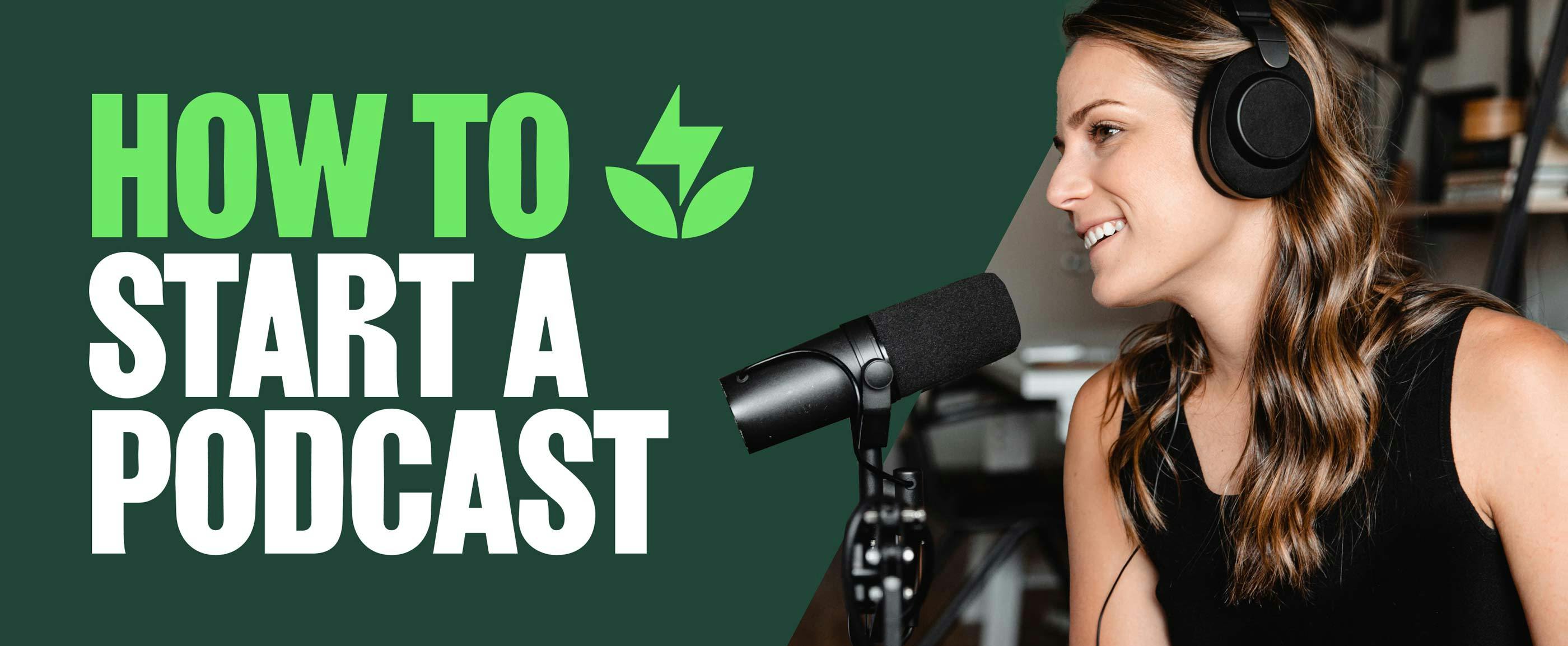Podcast SEO involves optimizing your audio content to rank higher in search results. Key techniques include keyword research and strategic episode titling.
Understanding the nuances of Podcast SEO can catapult your show to the top of listener’s searches. It’s a blend of art and science, where the right keywords can unlock a treasure trove of engaged audiences. Crafting a podcast that resonates with listeners and search engines alike requires a keen eye for detail and a deep understanding of SEO principles.
By applying targeted strategies, you can enhance your podcast’s visibility, drawing in a dedicated following eager for your next episode. It’s not just about creating compelling content; it’s about making sure it reaches the ears of those most interested. Join us as we delve into the world of Podcast SEO, offering you the keys to an audience-rich kingdom, where every episode is an opportunity for growth and discovery.

Credit: www.buzzsprout.com
Introduction To Podcast Seo
Welcome to the world of Podcast SEO. Let’s dive in.
The Importance Of Seo For Podcasts
SEO matters for podcasts. It helps people find you. Without it, your show might stay hidden. Think of SEO as a spotlight on your podcast. It makes your podcast shine on the internet. This brings more listeners and grows your audience.
- More Visibility: SEO puts your podcast in front of more eyes.
- Increased Engagement: With SEO, more people can find and engage with your content.
- Better Rankings: Good SEO practices can boost your podcast’s ranking on platforms and search engines.
What Is Podcast Seo?
Podcast SEO is about making your podcast easy to find. It uses keywords, descriptions, and titles to help search engines understand your content. This way, when someone searches for topics you cover, your podcast can appear in their results.
Key elements include:
- Title Optimization: Use clear, descriptive titles with keywords.
- Description Enhancement: Write engaging, keyword-rich descriptions.
- Strategic Keyword Use: Place relevant keywords throughout your content.
Choosing Your Podcast Niche
Embarking on a podcast journey begins with a crucial step: selecting a niche. Your podcast’s success hinges on this choice. It sets the stage for attracting a dedicated audience. Delve into finding your unique space with targeted strategies.
Identifying Your Target Audience
Know who will listen to your podcast. Picture your ideal listener. What are their interests? What challenges do they face? Understanding these points helps tailor your content.
- Age group: Consider the age range of your listeners.
- Interests: Identify topics that captivate your audience.
- Challenges: Know the problems your podcast can solve.
Researching Your Competition
Study other podcasts in your desired niche. This reveals what works and what doesn’t. Look for gaps you can fill with your unique perspective.
| Podcast Name | Topics Covered | Listener Engagement |
|---|---|---|
| Podcast A | Health, Fitness | High |
| Podcast B | Technology, Gadgets | Medium |
| Podcast C | Business, Startups | Low |
With this approach, your podcast stands out. You offer fresh content that listeners crave. Identify your audience. Research your competition. Succeed in your podcast niche.
Keyword Research For Podcasts
Podcasts need listeners. Listeners find podcasts through search. Keywords connect both. Understanding what words your audience uses to search for content like yours is crucial. Good keyword research helps your podcast reach the right ears.
Tools For Finding The Right Keywords
Many tools can help you find the best keywords for your podcast. Start with these:
- Google Keyword Planner: Finds keywords and gives search data.
- Keyword Tool.io: Generates long-tail keywords using Google Autocomplete.
- SEMrush: Offers detailed keyword analytics and competitive research.
- Ahrefs: Tracks keywords and analyzes the market.
Use these tools to gather a list of keywords relevant to your podcast topics.
Incorporating Keywords Into Your Content
Once you have your keywords, use them smartly. Here’s how:
- Place keywords in your podcast title. Make it catchy yet clear.
- Use keywords in your episode titles. They should hint at the episode’s content.
- Add keywords to your podcast and episode descriptions. Make descriptions informative.
- Include keywords in your show notes. Add value with summaries and resources.
- Create blog posts or articles related to your podcast. Use keywords throughout.
Remember, always keep your content natural. Do not overuse keywords. This can hurt your SEO.
Crafting A Compelling Podcast Title
Your podcast title is the first hook for potential listeners. It can make or break interest. A compelling title is key for discoverability and SEO. It must stand out and hint at your podcast’s value.
The Role Of Keywords In Titles
Keywords help your podcast show up in search results. They must match what your audience searches for. Use tools like Google Keyword Planner for the best keywords.
- Research: Find terms your audience uses.
- Select: Choose relevant, high-traffic keywords.
- Integrate: Place keywords naturally in your title.
Balancing Creativity With Seo
Creativity attracts listeners. SEO makes you findable. Your title needs both. Be descriptive yet concise. Aim for uniqueness and clarity.
| Creative | SEO-Friendly |
|---|---|
| Engaging | Keyword-rich |
| Memorable | Searchable |
| Descriptive | Relevant |
Use tools like Moz or SEMrush to balance creativity and SEO. They help you understand how well your chosen keywords will perform.
Optimizing Podcast Descriptions
Let’s dive into the world of podcast SEO, focusing on crafting the perfect description. This step is crucial for visibility and attracting listeners.
Essentials Of A Good Description
A podcast description must captivate and inform. It should provide a clear, concise overview of your podcast’s content.
- Title: Choose a catchy, descriptive title.
- Summary: Offer a brief, engaging summary.
- Length: Keep it under 250 characters for quick reads.
- Branding: Include your unique style or voice.
- Update Frequency: State your episode release schedule.
Utilizing Keywords Effectively
Keywords help your podcast show up in search results. Use them wisely in your description.
- Research relevant keywords for your niche.
- Include these keywords naturally in your description.
- Focus on a primary keyword for each episode.
- Use variations to cover similar search queries.
- Avoid keyword stuffing, which can harm SEO.
.jpg)
Credit: podcasters.spotify.com
Leveraging Show Notes For Seo
Leveraging Show Notes for SEO plays a crucial role in enhancing your podcast’s visibility. These notes not only provide valuable context to your episodes but also offer a rich ground for SEO optimization. By meticulously crafting show notes, you can significantly improve your podcast’s search engine ranking. Let’s delve into how to make the most of show notes for SEO.
Creating Detailed Show Notes
Crafting detailed show notes is the first step to harness their SEO potential. These notes should summarize the episode’s content in a clear, concise manner. Aim to include keywords that potential listeners might use to find content like yours.
- Start with a brief summary of the episode.
- Highlight the main topics covered.
- Use bullet points for clarity and ease of reading.
- Integrate relevant keywords throughout the notes.
Remember, the goal is to make your show notes informative and engaging, encouraging readers to listen to the episode.
Including Links And Resources
Including links and resources in your show notes is a powerful way to boost SEO. This strategy not only provides value to your listeners but also improves your website’s link authority.
| Type of Link | Purpose |
|---|---|
| Internal Links | Direct listeners to other episodes or relevant pages on your site. |
| External Links | Link to sources, guest websites, or products mentioned. |
Ensure all links are relevant and add value to your listeners’ experience. This approach will not only help with SEO but also build a stronger connection with your audience.
Enhancing Discoverability With Tags And Categories
Tags and categories boost your podcast’s visibility online. They help listeners find your content. Think of them as signposts. They guide your audience through the vast podcast landscape. Let’s dive into the best ways to use tags and categories.
Best Practices For Tagging
Tagging is vital for podcast SEO. Tags are keywords related to your podcast’s content. They make your episodes searchable. Here are best practices for tagging:
- Relevance: Choose tags that match your episode’s theme.
- Specificity: Pick tags that accurately describe your content.
- Research: Use SEO tools to find popular keywords.
- Consistency: Regularly use a set of core tags.
- Limit: Stick to 5-10 tags per episode to maintain focus.
Choosing The Right Categories
Selecting the right categories is just as crucial. Categories group your podcast with similar content. This makes it easier for fans to find you. Here’s how to choose categories:
- Analyze: Look at successful podcasts in your niche.
- Fit: Ensure your podcast fits the category’s theme.
- Balance: Find a category that’s not too broad or narrow.
- Update: Change categories if your podcast evolves.
Remember, clarity wins. Use clear, descriptive language for tags and categories. This will maximize your podcast’s discoverability.
Promoting Your Podcast
Getting your podcast noticed calls for smart promotion. Use the right strategies to reach more ears.
Cross-promotion Strategies
Team up with fellow podcasters to share audiences. Offer to mention each other’s shows. This can boost listener numbers for both parties.
Use your episodes to highlight guest appearances. This encourages listeners to check out new content. Create shareable content snippets for easy distribution.
- Swap interviews with other podcasters.
- Feature each other’s trailers in your shows.
- Collaborate on special episodes.
Engaging With Your Audience On Social Media
Post regularly to stay on your audience’s radar. Use hashtags to increase visibility. Create interactive content to spark conversations.
Run contests and giveaways to excite listeners. Ask for feedback through polls and questionnaires. This builds community and shows you value listener input.
- Share behind-the-scenes peeks.
- Announce new episodes with catchy graphics.
- Engage with comments promptly.
Analyzing And Adapting
Analyzing and adapting are key to podcast SEO success. After launching your podcast and implementing initial SEO strategies, the next vital steps are to track and refine your efforts. Regular analysis helps you understand what’s working. Ready adjustments ensure your podcast continues to grow in the crowded digital landscape.
Monitoring Your Seo Performance
Track your podcast’s SEO performance consistently. Use tools like Google Analytics and podcast-specific platforms. Look for trends in listener behavior and keyword rankings. Understand which episodes gain traction. Identify where listeners drop off. These insights guide your content strategy.
- Check rankings for targeted keywords.
- Analyze website traffic sources.
- Review listener engagement metrics.
- Examine social media shares and mentions.
Making Data-driven Decisions
Use data to inform your SEO decisions. If certain topics or formats drive more traffic, produce similar content. If specific keywords are not performing, revise your strategy. A/B testing titles and descriptions can also reveal what resonates with your audience.
| Action | Result | Next Step |
|---|---|---|
| Refine Keywords | Boost rankings | Continue tracking |
| Optimize Titles | Increase clicks | Test new variations |
| Improve Descriptions | Enhance engagement | Update old episodes |
Stay agile with your podcast SEO strategies. Be ready to pivot based on what the data tells you. This proactive approach keeps your podcast climbing the search engine ranks.
.jpeg)
Credit: riverside.fm
Technical Aspects Of Podcast Seo
Navigating the Technical Aspects of Podcast SEO is crucial. This guide focuses on understanding RSS feeds and optimizing your website for podcasts. Both elements play a key role in making your content easily discoverable online.
Understanding Rss Feeds
RSS stands for Really Simple Syndication. It lets people subscribe to your podcast. Think of it as a bridge. It connects your podcast to the world. An optimized RSS feed shares your episodes across platforms. This includes Apple Podcasts and Spotify.
- Title: Make it catchy and clear.
- Description: Describe what your podcast offers.
- Keywords: Use relevant ones. They help listeners find you.
Remember, a well-set RSS feed boosts your podcast’s visibility.
Website Optimization For Podcasts
Your podcast’s website is its home. Make it welcoming and easy to navigate. A well-optimized site attracts more visitors. It turns them into loyal listeners.
- Mobile-friendly design: Most users visit via phones. Ensure your site looks good on them.
- Fast loading times: Sites that load quickly keep visitors happy.
- Clear calls to action: Guide visitors. Tell them to listen, subscribe, or share.
Embedding podcast episodes directly on your site helps too. It makes listening easy for visitors. Every episode should have its page. This boosts SEO. Use titles, descriptions, and keywords for each episode page.
Frequently Asked Questions
How To Do Seo For Podcasts?
Optimize your podcast titles with relevant keywords. Create detailed, keyword-rich descriptions. Transcribe episodes to boost accessibility and SEO. Promote your podcast across social media platforms. Encourage listeners to leave reviews and share episodes.
How To Do Seo Step By Step?
Start by researching keywords relevant to your content. Optimize your website’s structure and ensure mobile-friendliness. Create high-quality, original content incorporating chosen keywords. Build backlinks from reputable sites. Regularly analyze and adjust your strategy based on performance metrics.
What Are The 7 Steps To Planning Your Podcast?
Define your podcast’s purpose and target audience. Choose a catchy name and format. Plan your content and episode structure. Gather your recording and editing equipment. Create engaging artwork and a theme song. Set up your podcast hosting platform. Promote your podcast on social media and podcast directories.
How To Research Keywords A Step By Step Guide For Seo?
Begin with brainstorming topics relevant to your content. Use tools like Google Keyword Planner to find keywords. Analyze search volume and competition for these keywords. Select a mix of short-tail and long-tail keywords. Incorporate them naturally into your content.
What Is Podcast Seo?
Podcast SEO involves optimizing your podcast content to increase its visibility and ranking on search engine results pages, making it easier for listeners to discover.
Conclusion
Crafting a successful podcast isn’t just about great content. It’s also about visibility. By applying the SEO techniques we’ve explored, from keyword optimization to engaging show notes, you’re setting your podcast up for discoverability. Remember, consistency is key. Start implementing these strategies and watch your audience grow.
Your podcast’s journey to the top of search results begins now.


